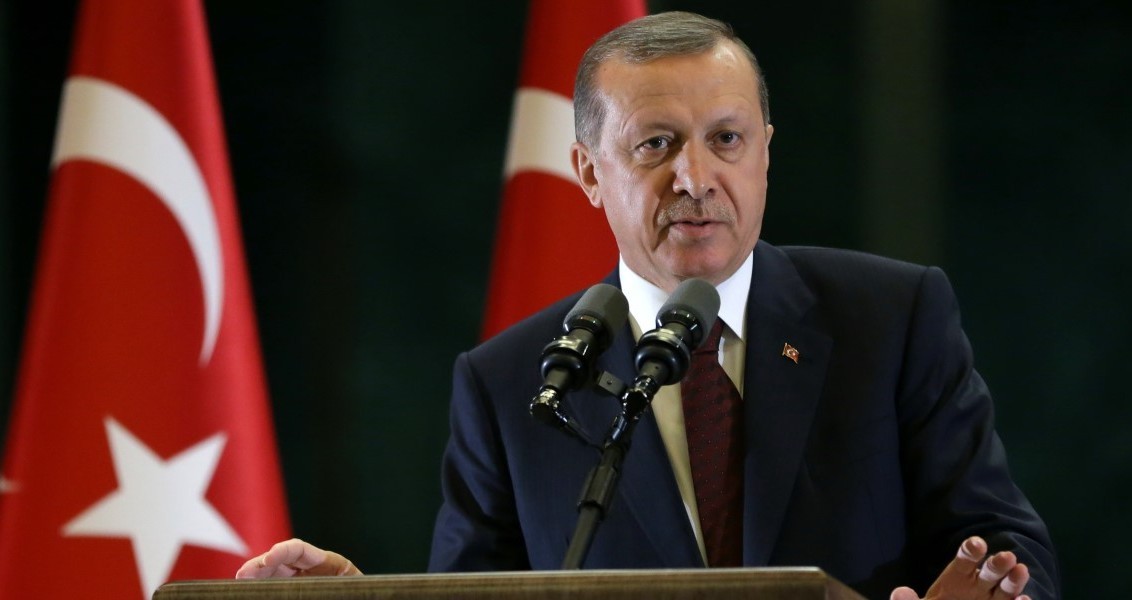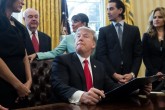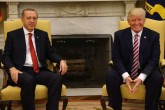German Chancellor Angela Merkel’s highly anticipated visit to Turkey did not produce any results other than to reiterate where Ankara and Berlin stood on a number of issues. Even if some people hoped for more, it was certainly unexpected – mainly due to an upcoming constitutional referendum in Turkey and parliamentary elections in Germany.
Meeting with the German chancellor, both President Recep Tayyip Erdoğan and Prime Minister Binali Yıldırım said they expected Berlin to work more closely with Turkey on the war against the outlawed PKK and the Gülenist Terror Group (FETÖ), whereas their guest stressed the importance of “democratic values” and “opposition.”
Mrs. Merkel’s immediate goal was to talk the Turkish leaders out of canceling the Turkey-EU refugee deal. Keeping in mind that she would have to carry Europe on her back during the Trump presidency and survive another election season at home, the German chancellor clearly did not want to deal with more problems. As such, she desperately wants to put off dealing with the negative consequences of the geopolitical whirlpool. Needless to say, her decision to bring up freedom of expression, judicial independence and the need for the Organization for Security and Cooperation in Europe (OSCE) observers to be present in Turkey during the referendum in a joint press conference with the Turkish president hinted that their meeting had been tense.
If there was any doubt that Mrs. Merkel had received a cold welcome in the Presidential Palace in Ankara, Mr. Erdoğan’s reaction to his guest’s references to “Islamist terrorism” provided valuable insights into their conversation. Objecting to the use of the coupling of Islam and terrorism, the Turkish president warned that many Muslims were deeply frustrated with such phrases: “For Islam cannot be associated with terrorism. The meaning of Islam is peace. As such, if we bring together a word that means peace with the word terrorism, it would upset the followers of the said faith. Personally, as a Muslim president, I cannot accept it. Turkey’s struggle against Daesh remains unparalleled in the world.”
Even though Mrs. Merkel responded by saying that she distinguished between “Islamic” and “Islamist,” her commitment to using the term “Islamist terrorism” shows how deeply the West has been buried in the twilight zone.
The toxic combination of the term “Islamic/Islamist terror” and widespread fears of Muslim immigrants fuels not only Islamophobia but also anti-Western sentiment. Again, Mrs. Merkel’s statements established that the association of “the other” with Islam is not limited to U.S. President Donald Trump – whom his critics like to call a populist and an authoritarian. As a matter of fact, the German chancellor, pledging to defend European values, echoing similar sentiments to Mr. Trump.
The West got dragged here as a result of three distinct developments: First, the counterterrorism policy adopted by the Western governments in the wake of the 9/11 terror attacks pushed the Muslim world toward radicalism. The Bush administration’s military involvement in Afghanistan and Iraq fueled terrorism – which targeted Muslims before spreading all around the world.
The second wave took place when the West, especially the Obama administration, turned a blind eye to the Arab Spring revolutions, whose supporters demanded democracy and civilian rule. Behind the smokescreen of Mr. Obama’s bold words about courage, hope and change, authoritarian regimes in North Africa and the Middle East cracked down on “moderate Islamist” movements and consolidated their power. As the Muslim Brotherhood’s “democratic transformation” was stopped in its tracks, new seeds of radicalism were planted across the region. Even Turkey’s Justice and Development Party (AK Party), which sought to redefine the country’s relations with the West along national interests, was labeled as a group of “authoritarian Islamists” by self-proclaimed Western liberals.
Having repeatedly developed failed policies regarding Islam, the United States will presumably kick off the third wave with Donald Trump at the helm. Under the new rules of engagement, any movement associated with Islamic demands will be treated as “Islamist terrorists” – which is why the Turkish president voiced his concerns in front of the cameras. His reaction was intended to warn Western governments from Berlin to Brussels to Washington.
[Daily Sabah, February 8, 2017]
In this article
- Foreign Policy
- Opinion
- 2017
- Afghanistan
- Africa
- Angela Merkel
- Anti-Islam
- Anti-Muslim
- Arab Spring
- Counterterrorism
- DAESH
- Daily Sabah
- Donald Trump
- Elections
- Europe
- Fethullah Gülen
- Fethullah Terrorist Organization (FETÖ)
- Freedom of Speech | Freedom of Expression
- German Chancellor
- Germany
- Gulen Community
- Gülen Movement
- Gülenist Terror Group
- Gülenist Terror Organization
- Hizmet Movement
- Iraq
- Islam
- Islamic
- Islamist Terror
- Islamophobia
- Kurdistan Workers' Party Terrorist Organization (PKK)
- Merkel
- Middle East
- Muslim
- North Africa
- Opposition
- PKK - YPG - SDF - PYD - YPJ - SDG - HBDH - HPG - KCK - PJAK - TAK - YBŞ
- Prime Minister
- Recep Tayyip Erdoğan
- September 11 2001 Attacks | 9/11
- Terror
- Terror Attack
- Terrorism
- The President of the Republic of Türkiye
- Turkish Foreign Policy
- Turkish President
- Türkiye's Foreign Policy
- Türkiye's Justice and Development Party | AK Party (AK Parti)
- United States (US)
- US President
- Western World
- Xenophobia



